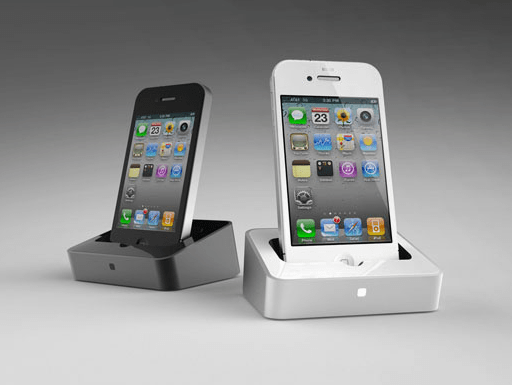Lumawake, an innovative iPhone dock designed to work with both 30-pin and lightning dock connectors, today kicks off its own pre-orders in a self-run crowdfunding attempt to bring its product to market. The team faced rejection from Kickstarter just one short week ago, after that crowdfunding platform changed its hardware project rules to minimize their role in the overall platform mix. Now it’s back, and the team tells me they’re confident that going it alone in the manner of App.net and Lockitron will help make sure that Lumawake makes it to market.
So what exactly does Lumawake do? Well it’s an iPhone dock, which means it’ll charge your device, and it’s made to be used with replaceable modules to help make sure that it’ll work with both iPhone 4/4S and the iPhone 5, using either the legacy dock connector or the new Lightning port. And, as indicated by the “luma” portion of its name, it features a soft-lighted top, which you can customize through your device. But the real magic is in the Lumawake’s more advanced, intelligent functions, including its ability to monitor your sleep patters from a bedside table via IR motion sensors, wake you when you’ll feel most rested, and work together with home automation systems to ensure that as you’re waking up, your house will be, too.
The Lumawake is no ordinary dock. It has a built-in microprocessor, the aforementioned LEDs and motion sensors designed to be as accurate as wearable monitors, but without having to stay with you in bed as you sleep. Using a free app, it can be used to schedule wake and sleep events, like turning off lights or the TV as you nod off, or starting the coffee maker when it wakes you up in the morning. And thanks to those built-in lights, it can simulate a sunrise to try and ease the transition from bed to waking life.
Already, Lumawake has partnerships with SmartThings and Belkin’s WeMo, two home automation solutions that should help it perform a variety of wake up and bedtime tasks. Lumawake’s Scott Roehrick, the company’s Chief Outreach Officer, told me in an interview that the startup is working on a number of other partnerships, too. Lumwake also is an existing Apple MFi licensee, meaning it should have no problem getting the devices approved from the perspective of Apple sign-off on its designs.Lumawake is looking for pre-orders from early adopters of $149 per unit, using the Selfstarter.us open-source crowdfunding platform created by Lockitron for its own fundraising efforts. Lockitron was also turned down by Kickstarter, but went on to raise $1.5 million on its own for its remote home locking system. Roehrick says that going it alone should help Lumawake gain more attention, since it’s still an exception rather than the rule, and also says it means they can set additional rules, like the one they’ve established that says they don’t collect any funds from backers until they’re actually ready to ship a physical device to their homes.
“At the end of the day, I think we’re confident enough in our product that we can just go off and do it,” he said. “It’s kind of scary… it was incredibly intimidating, but Lockitron was the first to do it and they’re Y Combinator as well, so they have that advantage. It’s a calculated risk, and we’re not 100 percent sure it’ll work… but we think there’s going to be a movement to do this, and we want to be one of the first.”
The SmartDock is definitely an impressive-looking product, and one that goes well beyond your typical, relatively inert bedside smartphone stand or even speaker dock. The company is putting a lot on the line by trying to crowdfund itself, without the benefit of a brand like Kickstarter to back it up, but the possibilities it entails are exciting, and that’s likely going to go a long way towards convincing a highly motivated group of early adopter, gadget-loving risk-takers.
